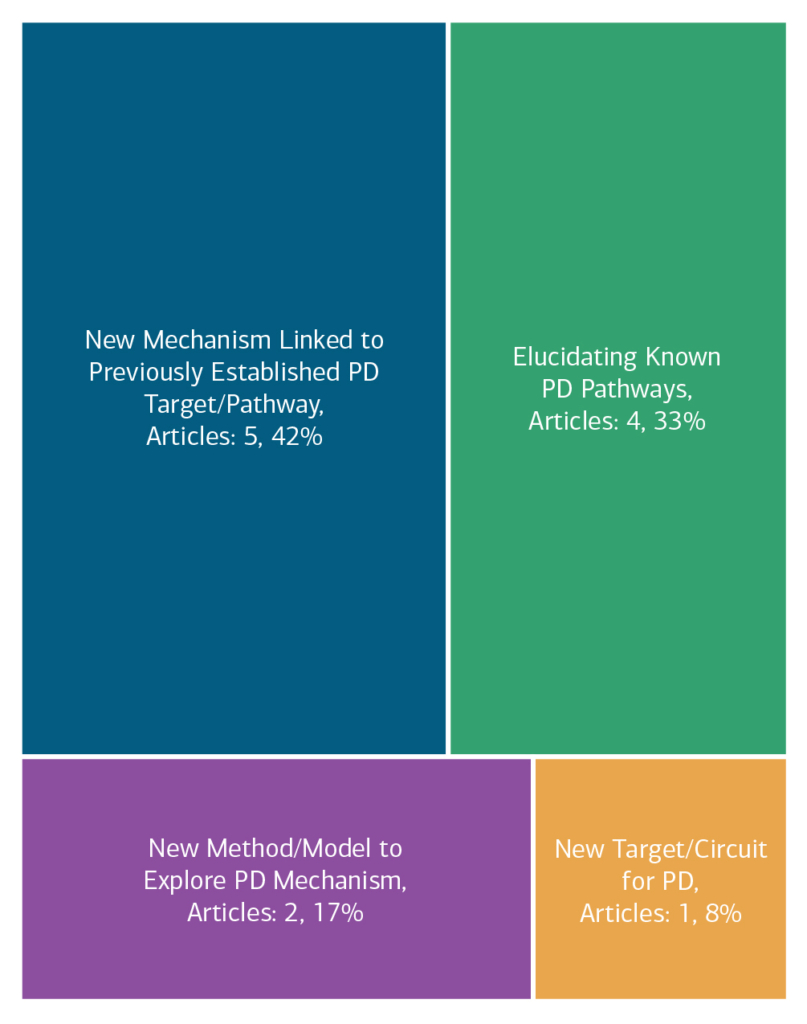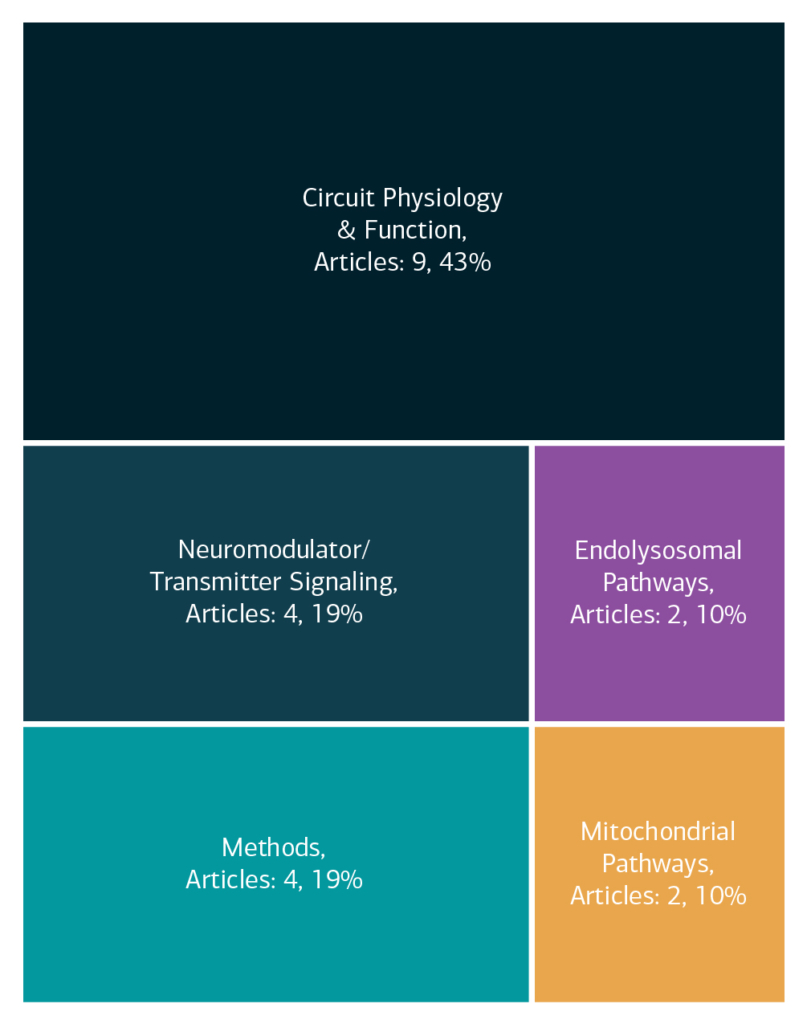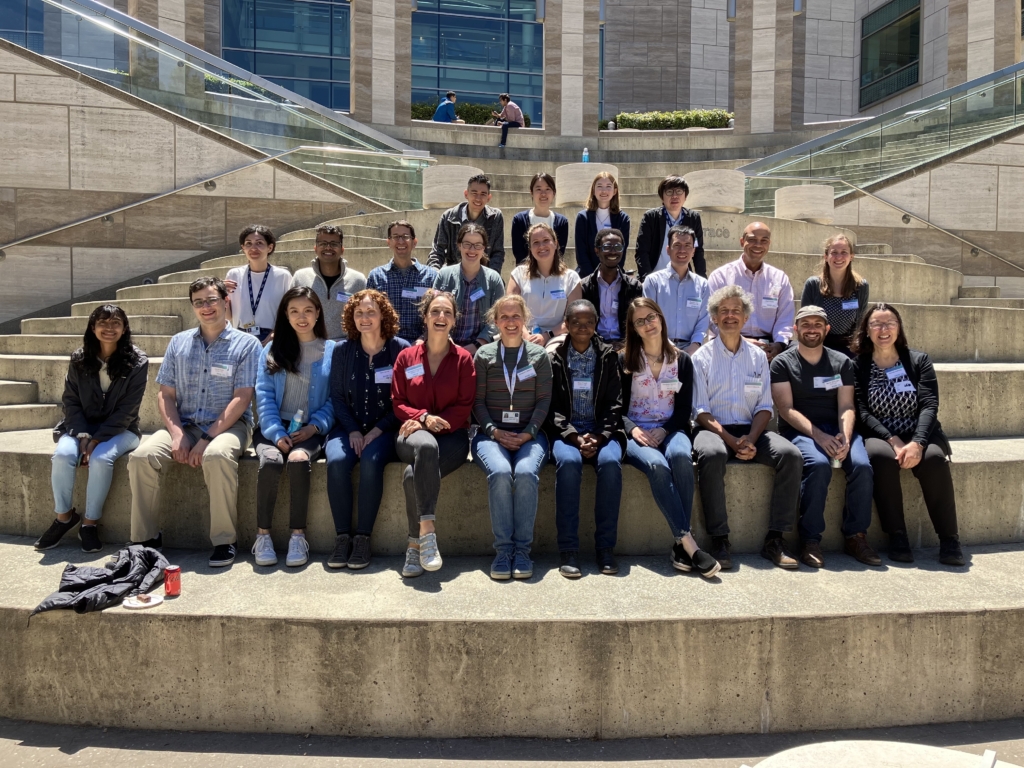Circuitry and Brain-Body Interactions | 2021
Dual Role of Neural Activity in Parkinson’s Disease
Study Rationale: Previous work has shown how the loss of dopamine neurons affects brain activity. In this program, Team Edwards will determine how brain activity influences the neurodegeneration that causes Parkinson’s disease (PD). To understand the onset of disease, the team will identify the earliest changes in brain activity and use them to infer the mechanisms involved. Team Edwards will also manipulate activity directly and determine how it interacts with known genes to produce degeneration.
Hypothesis: Team Edwards hypothesizes that abnormalities in neural activity do not simply reflect PD but actually cause the disease. Researchers’ lack of knowledge about the role of neural activity in Parkinson’s makes it difficult to understand how other, identified factors contribute to disease.
Study Design: Team Edwards will use two models of PD, one based on over-expression of the pathogenic protein alpha-synuclein and the other based on a direct increase in activity. The strategy is to (a) identify the earliest events along the pathway to degeneration and to (b) correlate these with the selective vulnerability of particular neurons to PD. These approaches will reveal the processes specifically affected by PD. Team Edwards will also determine how neural activity intersects with factors previously implicated in PD, providing a foundation to understand how they cause degeneration.
Impact on Diagnosis: With greater understanding around the onset of disease, Team Edwards can further investigate how genetic and environmental factors conspire to produce PD. This will open entirely new areas to arrest and prevent the underlying degeneration.
Leadership
Project Outcomes
By identifying the earliest changes leading to degeneration, the physiology will indicate mechanisms involved in disease onset. View Team Outcomes.
Team Outputs
Click the following icons to learn more about the team’s outputs:
Overall Contributions
Here is an overview of how this team’s article findings have contributed to the PD field as of February 2025. There are two different categorizations of these contributions – one by impact to the PD community and a second by scientific theme.
Impact

Theme

Featured Output
Below is an example of a research output from the team that contributes to the ASAP mission of accelerating discoveries for PD.
Therapeutic deep brain stimulation disrupts movement-related subthalamic nucleus activity in parkinsonian mice
Subthalamic nucleus deep brain stimulation (STN DBS) relieves many motor symptoms of Parkinson’s disease (PD), but its underlying therapeutic mechanisms remain unclear. Team Edwards used electrical artifact-free GCaMP fiber photometry during STN DBS in a Parkinson’s mouse model and observed changes in activity that were sufficient to relieve motor symptoms. These findings suggest that STN DBS exerts its therapeutic effect through the disruption of movement-related STN activity, providing further insight into optimizing PD treatments and establishing an approach for investigating DBS in other neuropsychiatric conditions.
Team Accolades
Members of the team have been recognized for their contributions.
- Network Spotlights: Yuhong Fu
- Open Science Champions: Alexandra Nelson, Xiaowen Zhuang, Yuhong Fu
- Awards
- 2023 Collaborative Meeting: Jacob Nadel (Third Place in Circuitry; San Diego)
- COSA Prize Winners 2024: Jessica Perkins (First Place)

Other Team Activities
- Working Groups:
- ANALYSE Neuropathology – Glenda Halliday (Co-Chair)
In the News
- The team is hard at work and will share outcomes when available.











